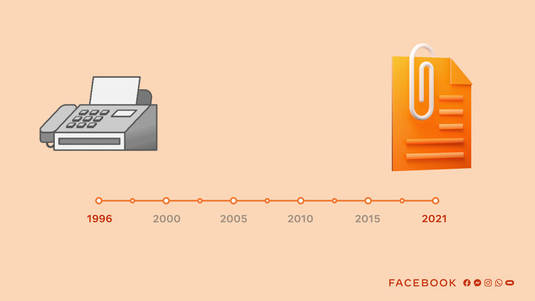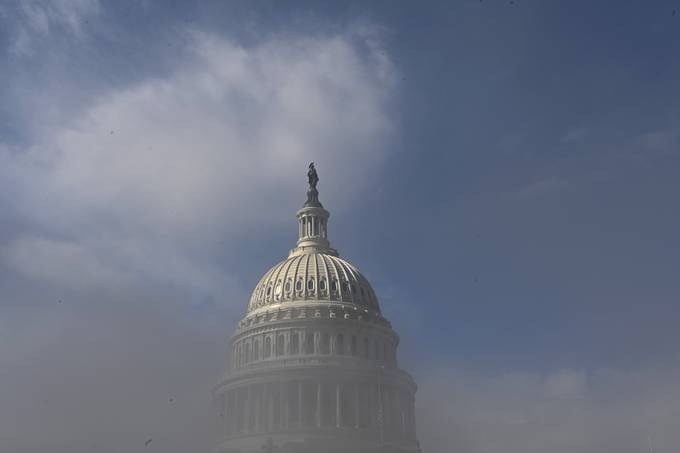| Microsoft is calling for new limits on gag orders that prevent companies from letting people know the government has obtained copies of their emails or other data. These types of gag orders left many Americans in the dark as the Trump Justice Department issued secret subpoenas while investigating former White House counsel Don McGahn, members of Congress and the media. Brad Smith, the company's president, wrote in a Washington Post op-ed that Attorney General Merrick Garland needs to treat the issue as a "personal priority." He called for the Justice Department to tighten the use of gag orders, as well as outlaw indefinite gag orders and ensure that companies have a mechanism to challenge them. "Congress should prohibit the executive branch from conducting its investigations wholly in secret absent a strong showing of necessity supported by compelling evidence," Smith wrote. "And even when the government does meet that burden, any secrecy order should be narrowly tailored in time and scope."  Microsoft President Brad Smith listens during a Senate Intelligence Committee hearing on Capitol Hill. (Photo by Demetrius Freeman/The Washington Post/POOL) | Tech companies are caught between their commitments to user privacy and pressure to comply with law enforcement requests. Smith's op-ed follows revelations of striking data seizures from tech companies during the Trump era, targeting former White House counsel Donald McGahn, Democratic members of the House Intelligence Committee and journalists at multiple news outlets, including The Washington Post. The disclosures are reigniting long-running controversies over how tech giants' can protect users' privacy from government requests, as their grip on Americans' personal data grows and becomes a more compelling target for law enforcement. Rep. Adam B. Schiff, then the top Democrat on the House Intelligence Committee, and Rep. Eric Swalwell, were among those targeted by a 2018 secret Justice Department subpoena. Apple in May had notified at least 12 people connected to the panel of subpoenas for their data, and that one minor was among them, my colleagues Matt Zapotosky and Karoun Demirjian report.  Rep. Adam Schiff talks with reporters in January 2020. (Photo by Katherine Frey/The Washington Post) | The handling of law enforcement requests is an industry-wide challenge. The New York Times reported that Microsoft received a subpoena in 2017 related to a personal email account. The company notified the customer after the gag order expired and then learned that the person was a Capitol Hill staffer. "We will continue to aggressively seek reform that imposes reasonable limits on government secrecy in cases like this," the company told the Times. Google did not respond to a request for comment about the Trump era data requests. However the company fought a gag order this year on a subpoena to turn over data on the emails of four New York Times reporters, as part of the same Trump administration leak investigation, the Times reports. The company argued its contract as the newspaper's corporate email provider required it to inform the newspaper of any government requests for emails. The exposures have reignited long-running concerns about the relationship between tech companies and law enforcement. Tech companies have been fighting for greater transparency around secretive government requests since the 2013 revelations from Edward Snowden, which put a spotlight on the ways government agencies obtain data from private American companies. In the years since, tech companies have built transparency websites about the requests they receive, and sought to position themselves as defenders of their customers' data. Apple famously publicly fought an FBI request to help it break into the encrypted phone of the shooter in the San Bernardino, Calif., terrorist attack. Yet the privacy debate has significantly shifted over the past eight years, and it recently has focused more on the companies' data practices, especially in the wake of Facebook's Cambridge Analytica scandal. These leaks could reignite long-running scrutiny and criticism of how tech companies' massive data troves can potentially be secretly abused by governments or law enforcement. Apple is making changes to its policies amid these concerns. To fight overly broad subpeonas, the company recently started limiting its disclosures about individuals to 25 "identifiers," such as email addresses or phone numbers. That change comes after the company turned over the lawmakers' data following a February 2018 subpoena, which sought account information associated with 73 phone numbers and 36 email addresses. The company said without digging through the users' accounts, it couldn't have determined the nature of the targets or the investigation. "We regularly challenge warrants, subpoenas and nondisclosure orders and have made it our policy to inform affected customers of governmental requests about them just as soon as possible," Apple spokesman Fred Sainz said in a statement. " Consistent with the request, Apple limited the information it provided to account subscriber information and did not provide any content such as emails or pictures." | 










No comments:
Post a Comment